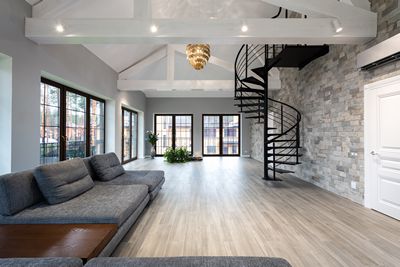
Are you planning to own a property in the Lion City?
Lets just say you are financially capable but a foreign national. Is it possible for you to own real estate in Singapore ? Yes, of course. But beware. The entire process can be tedious because of some restrictions and the eligibility needed to start the purchase.
For foreigners in Singapore, it is important to note that strict government restrictions on foreign property ownership means that the properties open to you is substantially lesser t han what’s available to the average Singaporean.
Definition of Foreigners in Singapore
In the Lion City, a foreigner is an individual or a group of individuals who is NOT the following:
- a Singapore citizen;
- a Singapore-based company;
- a Singapore limited-liability partnership; or
- a Singapore society
What kind of public housing can you buy as a foreigner?
In general, foreign nationals can buy commercial and industrial properties, and residential properties except landed residences.
Most foreigners are allowed to buy Executive Condominiums (EC). However, depending on your status (whether you are a PR, a fiancé of a citizen, or neither of the available schemes), you may own one or more.
Take a look at these classifications:
- Both you and your partner is a PR can own a resale flat and EC resale both 5 years and 10+ years
- You are a PR but your fiancé is not EC resale both 5 years and 10+ years
- Neither of you are PR EC resale only if 10+ years
- You are single and PR EC resale both 5 years and 10+ years
- You are single but not PR EC resale only if 10+ years
What are the available private housing for foreigners in Singapore?
If you are one of the unlucky few who failed to acquire public housing, your only option then to own a property here is to purchase a private estate.
Take note that foreigners looking for a condominium or apartment unit have no restrictions when purchasing these forms of housing. He or she is also free to purchase any property zoned for commercial use, such as shop houses, offices, shopping malls, etc.
Here are the three main types of condominiums or apartments that you can buy as a non-citizen:
- units that have already received its Temporary Occupation Permit (TOP)
- units nearing its TOP and units that have just been launched by developers, or
- Newly Launched Condominiums or those in the early stages of being built
Whether it is a freehold or leasehold condominium, foreigners can own any of the two types.
Restrictions
Generally, foreigners are not allowed to purchase the following landed properties:
- terrace houses
- bungalows
Unless you have been given special consent from the Singapore Land Authority, then a foreigner may proceed with the purchase. Such permission is only granted if the applicant can prove that he or she makes an ‘adequate economic contribution’ to Singapore.
This restriction does not, however, apply to landed properties that are:
- part of a larger condominium (e.g. cluster houses or townhouses)
- located along the exclusive and luxurious Sentosa Cove
Overall, here is the list of the properties a foreigner can or cannot buy:
Types of properties that DOES NOT require special approval from the Land Dealings Approval Unit of Singapore Land Authority:
- Condominium unit
- Flat unit
- Strata landed house in an approved condominium development
- A leasehold estate in a landed residential property for a term not exceeding 7 years
- Shophouse (for commercial use)
- Industrial and commercial properties
- Hotel (registered under the provisions of the Hotels Act)
- Executive condominium unit, HDB flat and HDB shophouse
Types of properties that require approval from the Land Dealings Approval Unit of Singapore Land Authority before foreigners can purchase them:
- Vacant residential land
- Terrace house
- Semi-detached house
- Bungalow/detached house
- Strata landed house which is not within an approved condominium development under the Planning Act (e.g. townhouse or cluster house)
- Shophouse (for non-commercial use)
- Association premises
- Place of worship
- Workers dormitory/service apartments/boarding house (not registered under the provisions of the Hotels Act)
What about renting a property?
You will be glad to hear that there are no restrictions when it comes to you renting a property, regardless of whether they are private or public. However, you must make sure that the public housing owners have fulfilled the minimum 5-year occupancy period. This is because they are not legally allowed to sub-lease their entire flat unless they have met the required number of years of occupancy, so be sure to check that they have satisfied that requirement before you commit to a lease.
Ready to purchase your first freehold property? May this Real Estate Guide help you out with your purchase and somehow lessen your doubts. Feel free to comment below, if there are still any.